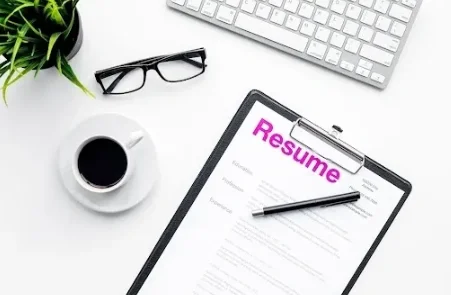Blog
Choosing Between Quitting and Getting Fired: What’s Best for Your Career?
Introduction
Deciding whether to quit your job or wait to be fired can have a big impact on your career and reputation. Both choices come with their own challenges and opportunities that could affect your future job prospects, financial stability, and personal growth.
This article, “Choosing Between Quitting and Getting Fired: What’s Best for Your Career?”, aims to shed light on the pros and cons of each option. By understanding these aspects, you can make an informed decision that aligns with your career goals and personal circumstances.
The purpose here is to provide you with the insights you need to navigate this important moment in your career. Whether you’re considering leaving on your own terms or facing the possibility of being let go, taking the time to evaluate all factors will empower you to take control of your professional journey.
Understanding Quitting
Voluntary resignation means making a conscious choice to leave your current job. This decision gives you a lot of control over how your departure is perceived, which can be helpful in shaping your professional reputation. When you decide to leave, it allows you to explain your reasons for leaving in a way that aligns with your career goals and personal values.
Advantages of Quitting
- Maintaining Professional Reputation: By choosing to resign, you can often ensure that your exit from the company is seen as a positive career move rather than a forced termination. This may help in preserving your professional relationships and reputation.
- Strategic Exit: Quitting allows for a planned transition where you can align the timing of your departure with securing another job offer or completing critical projects. This strategic planning can minimize career disruptions and enable a seamless transition to new opportunities.
Disadvantages of Quitting
While there are clear advantages, quitting also carries certain risks:
- Loss of Unemployment Benefits: One significant downside is the potential loss of eligibility for unemployment benefits. In many places, voluntarily leaving a job disqualifies you from receiving these benefits, which could be crucial during periods between jobs.
- Potential Negative Perceptions: If not managed carefully, quitting can sometimes lead to negative perceptions among future employers. They might question your commitment or wonder if there were underlying issues leading to your decision to leave.
Ultimately, understanding the complexities of quitting helps you assess its impact on your professional journey. Balancing these advantages and disadvantages is key in deciding whether voluntary resignation is the right path for you.
Strategic Planning for Quitting

Exit Strategy is crucial when contemplating quitting your job. Ensuring you have another job lined up before resigning can significantly reduce stress and uncertainty. This proactive approach maintains financial stability and keeps your career progression on track.
Communicating your resignation professionally is key. Draft a formal resignation letter, stating your intention to leave, providing the required notice period, and expressing gratitude for the opportunities you had. Arrange a meeting with your supervisor to discuss your decision, keeping the tone positive and constructive. Maintaining professionalism leaves a lasting impression and preserves relationships.
Networking plays a pivotal role in transitioning smoothly to a new position. Engage with industry contacts through platforms like LinkedIn or professional associations. Attend relevant events or workshops to expand your network. Connections often lead to job opportunities that are not publicly advertised, making networking an invaluable tool in your job search arsenal.
By carefully strategizing your exit, securing a new role ahead of time, communicating effectively, and leveraging your network, you can navigate the process of quitting with confidence and poise.
Maintaining Professional Relationships After Quitting
Leaving a job doesn’t mean severing ties with your professional network. In fact, maintaining positive relationships with former employers and colleagues can be beneficial for your career. Here’s how to ensure you leave on good terms:
- Express Gratitude
When resigning, express appreciation for the opportunities you’ve had. A simple thank-you note or email can leave a lasting positive impression.
- Provide Ample Notice
Giving notice well in advance shows respect for your employer’s time and allows them to plan for your departure. This gesture can help preserve goodwill.
- Offer Assistance
Volunteer to assist in training your replacement or documenting your responsibilities. This demonstrates professionalism and dedication until the very end.
- Exit Interviews
Use exit interviews as an opportunity to provide constructive feedback while maintaining a positive tone. This is your chance to express any unresolved issues diplomatically.
Maintaining these connections is crucial for future opportunities. Former employers and colleagues can serve as valuable references and may even inform you of job openings within their networks. Staying connected through platforms like LinkedIn ensures that you remain in the loop and provides an avenue for mutual professional support.
Choosing between quitting and getting fired impacts how you maintain professional relationships, so weigh your options carefully to ensure alignment with your long-term career strategy.
Understanding Getting Fired
Getting fired means losing your job against your will. Usually, it’s the employer who decides to terminate your employment because of reasons like poor performance, breaking company rules, or changes in the organization. Although this experience can be tough, it’s not unusual in the professional world and it has its own impact on your career path.
Advantages of Getting Fired
- Eligibility for Unemployment Benefits: One significant advantage is the potential eligibility for unemployment benefits. These benefits can provide a financial cushion while you regroup and search for new opportunities.
- Opportunity for Reflection: Being fired can serve as a wake-up call, prompting self-reflection and personal growth. It provides a chance to reassess your career path and make necessary adjustments to better align with your goals and values.
Disadvantages of Getting Fired
- Stigma in the Job Market: Unfortunately, there remains a stigma associated with being fired. Some employers may view this negatively, which can impact your job search. It’s crucial to address this experience positively in interviews to mitigate any negative perceptions.
- Emotional Impact: The emotional toll of losing a job shouldn’t be underestimated. It can affect self-esteem and mental health, making it vital to seek support from friends, family, or professional counseling if needed.
Understanding the nuances of getting fired allows you to navigate this challenging situation effectively and turn it into an opportunity for growth. By acknowledging both the advantages and disadvantages, you position yourself to make informed choices about your future career direction.
Navigating the Aftermath of Being Fired
Facing the aftermath of being fired can be daunting, but taking proactive steps can ease the transition and set you on a path toward recovery and growth.
Immediate Steps to Take:
- Understand Severance Packages: Review any severance package offered by your employer. This may include financial compensation, benefits continuation, or support services, such as job placement assistance.
- File for Unemployment Benefits: If eligible, apply for unemployment benefits promptly to alleviate financial stress during your job search.
Framing the Experience Positively:
- Prepare Your Narrative: In future interviews, address your termination candidly yet positively. Focus on what you learned from the experience and how it has prepared you for new opportunities.
- Highlight Your Growth: Emphasize skills gained and personal development during this period. Employers appreciate candidates who show resilience and adaptability.
Emotional Recovery and Personal Growth:
- Self-Reflection: Use this time to reflect on your career path, identifying areas for improvement and setting new goals. Self-reflection fosters personal growth and prepares you for future challenges.
- Seek Support: Surround yourself with a supportive network of friends, family, or professional counselors to aid in emotional recovery. Sharing experiences with others who have faced similar situations can provide comfort and guidance.
Adopting these strategies not only aids in emotional recovery but also enhances your job search strategy, enabling you to approach future opportunities with renewed confidence.
Weighing Personal Circumstances in Your Decision-Making Process
Deciding whether to quit or wait to be fired is a deeply personal choice. It depends on various factors that are unique to your situation. These circumstances play a crucial role in determining what’s best for your career.
Evaluating Personal Circumstances
- Financial Stability: Consider your financial situation. If you have savings or another job lined up, quitting might be feasible. However, if finances are tight, the unemployment benefits that come with being fired could provide a temporary cushion.
- Work Environment: Reflect on your workplace dynamics. A toxic work environment can severely impact mental health, making quitting a more appealing option.
The Impact of Mental Health
Mental health should be a priority in any decision-making process. Prolonged exposure to stress or dissatisfaction can lead to burnout. Assess how staying in your current role affects your well-being and whether leaving would alleviate these pressures.
Aligning the Choice with Long-Term Career Goals
Your decision should align with long-term career aspirations. If staying aligns with learning opportunities or career progression, it may outweigh short-term discomforts.
Conversely, if the position no longer serves your goals, strategically planning an exit—whether through quitting or accepting termination—can open doors to roles better suited to your ambitions.
Choosing between quitting and getting fired requires careful consideration of these personal factors. Each path carries its own set of implications on mental health and career objectives.
Making the Final Decision: Quitting vs. Getting Fired
Creating a Pros and Cons List
A practical step in making your decision involves compiling a pros and cons analysis tailored to your situation. Consider how quitting may allow you to maintain control over your professional narrative, while getting fired might offer benefits eligibility. On the flip side, weigh potential drawbacks like financial insecurity if quitting or reputational harm if fired.
Factors to Consider
- Financial Situation: Assess your savings and ability to endure a job search period without income.
- Job Market Conditions: Explore current opportunities in your industry. A robust market might make quitting seem less daunting.
- Personal Values and Long-term Goals: Reflect on how each option aligns with what matters most to you professionally and personally.
Seeking Advice from Mentors or Peers
Reach out to trusted mentors or colleagues who have faced similar crossroads. Their experiences can provide valuable insights into how each choice impacted their careers and personal lives. Additionally, discussing your situation with others can offer new perspectives that you might not have considered alone.
Engaging in this thorough examination ensures that your decision is informed by both objective factors and personal values. Taking into account these elements allows you to navigate this pivotal career moment with greater clarity and confidence.
Conclusion: Taking Control of Your Career Path
Reflecting on your career trajectory is essential as you navigate the decision between quitting and getting fired. Making informed choices requires understanding how each option aligns with your long-term career goals. Whether opting to resign or facing termination, the key is to ensure that your actions are in harmony with what you envision for your professional future.
- Evaluate Personal Circumstances: Consider how each path impacts your mental well-being and career aspirations.
- Align Decisions with Goals: Focus on strategies that support your career objectives, whether through a strategically planned exit or leveraging the lessons from being terminated.
Choosing Between Quitting and Getting Fired: What’s Best for Your Career? is ultimately a personal decision. Emphasizing self-reflection and goal alignment will empower you to take control of your career path, making choices that foster growth and resilience in the face of professional challenges.
Latest Posts
- How to Write Engaging LinkedIn Articles That Build Your Brand
- How to Perfectly Align Your LinkedIn Profile with Your Resume
- How to Update Your Resume for 2025: Expert Tips from NimoHR
- Expert Resume Formatting Tips to Beat Applicant Tracking Systems (ATS)
- Industry-Specific CV Writing: Why One-Size-Fits-All Doesn’t Work
- How a Professionally Written CV Can Speed Up Your Job Search
- Why LinkedIn Profile Optimization is the Secret to Standing Out in a Competitive Job Market
- How a LinkedIn Profile Writer Can Transform Your Online Presence
- Enhancing Your Job Application: The Value of a Cover Letter Review Service
- Common Mistakes in Cover Letters and How Professional Services Can Help
- Overcoming Common Interview Challenges: Gaps in Employment and Career Transitions
- The Role of Non-Verbal Communication in Job Interviews
- Mastering the Salary Conversation: Essential Strategies for Effective Negotiation
- Mastering LinkedIn Skills: How to Choose the Best Skills for Career Growth
- 5 Proven Strategies to Send LinkedIn Invitations That Get Accepted
- Crafting the Perfect Cover Letter for an Internal Position: A Step-by-Step Guide
- Did You Know? Your Resume Reference Page Could Make or Break Your Job Application
- Crafting a Layoff Notice: Effective Communication During Work Shortages
- Mastering Behavioral Interview Questions: Tips and Examples
- In-Demand Skills for 2024: What to Include on Your Resume
- Navigating Career Transitions: Reshaping Your Resume for a New Path
- How to Optimize Your LinkedIn Profile
- Cracking the Job Interview: Insights from NimoHR’s Interview Preparation Sessions
- Using LinkedIn Articles to Showcase Your Expertise
- Creating a Standout Resume for Phoenix Employers: Tips on crafting a resume tailored to the preferences of local Phoenix employers
- Resume Trends for 2024: What You Need to Know
- From First Impression to Final Question: Excelling at the Four Key Interview Evaluation Points
- Behind the Screens: Understanding the Role of ATS in the Hiring Process
- How to Create the Perfect Executive LinkedIn Profile?
- How to Write a Cover Letter That Gets You the Job You Want
- How To Build A Resume
- Get Professionally Written Resumes And LinkedIn Profiles
- Top 5 Reasons To Avail Of LinkedIn Resume Writing Services
- Helpful Tips For Writing A Perfect Cover Letter
- How to Ace Your Next Interview
- 15 Things To Leave Off Your Resume
- Applying Strategically and Networking
- Effective Interview Strategies
- The Best Job-Board Sites
- 4 Simple Signs That You Should Quit Your Job
- The most common interview questions & the best way to answer them
- How to beat those pesky Applicant Tracking Systems
- Jump-start your career during the COVID-19 crisis
- Questions to ask in an interview
- Career consulting ROI. Why you should purchase a professional resume writing services
- The Importance of a Company Culture and HR’s Role
- Why companies should offer outplacement services and career coaching
- Interview Tips: Back to the Basics
Categories
Related Posts

How to Write Engaging LinkedIn Articles That Build Your Brand
LinkedIn is more than a networking platform—it’s a place to share insights, build authority, and grow your personal brand. Knowing how to write engaging LinkedIn articles can amplify your voice, attract job opportunities, and establish you as an industry thought leader. Whether you’re working with a LinkedIn profile optimization service or looking to boost your… Continue reading How to Write Engaging LinkedIn Articles That Build Your Brand
Read More
How to Perfectly Align Your LinkedIn Profile with Your Resume
Why Alignment Matters Your LinkedIn profile and resume should tell the same story—but tailored for different audiences. While your resume is targeted toward specific job applications, your LinkedIn profile is a living, breathing summary of your career. In today’s job market, hiring managers often look at both. A mismatch can raise red flags. That’s… Continue reading How to Perfectly Align Your LinkedIn Profile with Your Resume
Read More
How to Update Your Resume for 2025: Expert Tips from NimoHR
Updating your resume for 2025 requires more than just listing your latest job. With applicant tracking systems (ATS) becoming more sophisticated, you need to format and write your resume strategically to stand out. At NimoHR, we specialize in helping professionals craft impactful resumes that pass ATS filters and impress hiring managers. If you’re ready to… Continue reading How to Update Your Resume for 2025: Expert Tips from NimoHR
Read More